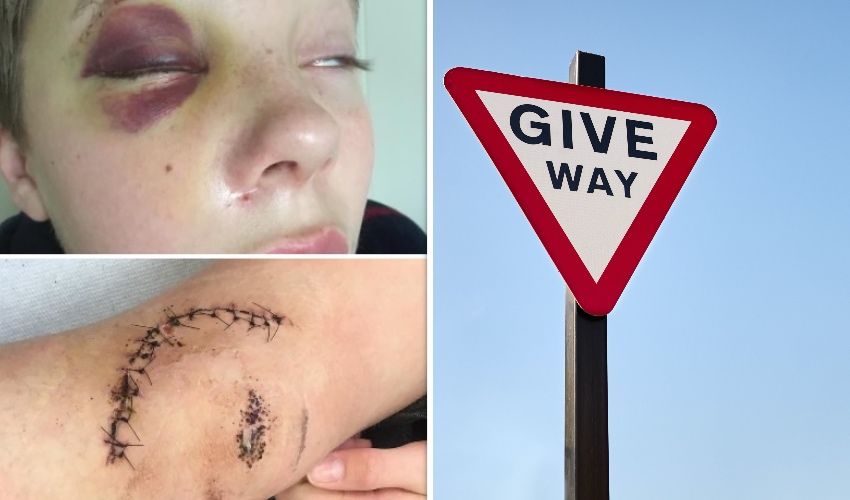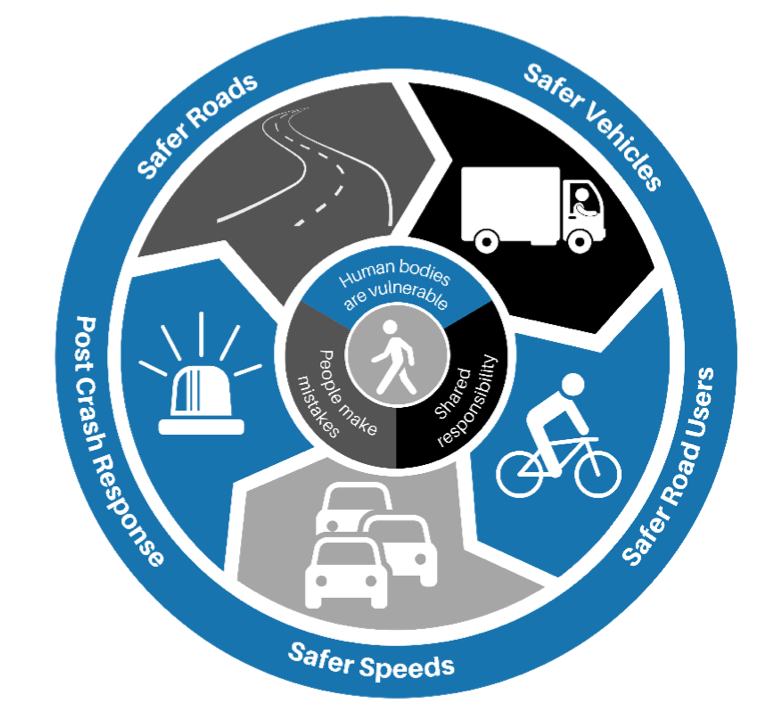


A new report on road safety – which sets a target of halving the number of people annually killed or seriously injured on Jersey’s roads by 2032 – has been welcomed by the mother of a child whose accident spurred the review.
Joanna Dentskevich - whose son Freddie was badly injured when he was knocked off his bicycle by a van at a junction in St. Martin in March 2020 – said she hoped that the ‘Island Road Safety Review’ would lead to a properly funded strategy being implemented.
The review was carried out by the Government in response to a successful States proposition by St. Martin Constable Karen Shenton-Stone. Her proposal, in turn, had been prompted by the story of Freddie, who suffered a fractured arm, cuts and bruises, and concussion in the accident.
The police investigated but chose not to prosecute the driver, prompting Mrs Dentskevich to campaign for the introduction of a ‘Freddie’s Law’ – legislation that would establish ‘presumed liability’ in Jersey.
This would have introduced a ‘hierarchy’ of road use so that more vulnerable users would automatically have more legal protection in a collision with a better protected vehicle, unless there was clear proof of culpability.
Her campaign included launching a petition which was signed by more than 3,700 people and received a ministerial response.

Pictured: A graphic included in the review which illustrates the 'tranches and actions' of the Safe System Approach to Road Safety.
Constable Shenton-Stone’s proposition also called for the Government to investigate a hierarchy of responsibility, but that work is separate to the road safety review.
Commenting on the recently published report, Mrs Dentskevich said: “What initially stemmed from an emotive petition following Freddie’s RTC in March 2020, to a full review within the space of less than a year is incredible.
“The outside experts pulled in to work on this together with the Infrastructure team reflects the importance of safety and how necessary it is for the island’s future. I am grateful to that team and Transport Minister Kevin Lewis and Constable Shenton-Stone for making this happen.”
She added: “The review sadly highlights the very high proportion of collisions and casualties on Jersey roads, especially those involving vulnerable road users – over the last three years, on average, 82% of the killed and seriously injured casualties were vulnerable road users.
“I was shocked to read that per 100,000 of population, these types of injuries are greater on Jersey’s roads than in Great Britain.
The review recommends that something called a ‘Safe System Approach’ is adopted. This is a model with four key principles:
People make mistakes which can lead to collisions; however, no one should die or be seriously injured on the road as a result of these mistakes. As people are fallible, collisions cannot be eradicated by just improving road user behaviour, so the safe road system must be able to accommodate people making mistakes and be as forgiving as possible.
The human body has a limited physical ability to tolerate collision forces – any impact greater than 30 km/h increases the risk of dying significantly. Vulnerable road users - who have less collision protection than occupants of motor vehicles - are particularly at risk of becoming injured in a collision. So, the safe road system must use the human body’s tolerance to impact forces as a guiding design tool.
Road safety is a shared responsibility among everyone, including those that design, build, operate and use the road system. Traditionally, the responsibility for staying safe on the road fell on individual road users. However, under the Safe System Approach, everyone has a part to play in keeping themselves and each other safe.
To help build a safe road system that is forgiving of mistakes, investment needs to be made in the creation of Safe Roads, Safe Speeds, Safe Vehicles, Safe People and Post Collision Response to put layers of protection around people to keep them safe from death and serious injuries on the road.
Mrs Dentskevich said: “This model is based on the assumption that people make mistakes and collisions will happen and that if roads are safe and used safely, drivers comply with rules, adapt to conditions and do not break the law when they drive - for example, by not using a mobile phone - then casualty numbers will drastically reduce.
“Fundamental to that approach though, is that all road users need to take responsibility for their behaviour, show respect to others and rules are enforced - something that is the norm in all other parts of our lives but seemingly not on our roads. You only have to cycle in France to experience the gap.”

Pictured: The review introduces the concept that everyone has responsibility for road safety, from drivers and cyclists to junction designers and policymakers.
She added: “A Safe System Approach needs to have at its core, constant education and reinforcement of road safety obligations, a policing body that is sufficiently trained and enforces the laws holding the perpetrator to account with a punishment system that acts as a deterrent and reflective of the gravity of people’s actions.
“The review says that over the last three years [2017-2019], on average, one person per week was seriously injured as a result of an RTC yet there seems to have been virtually no prosecutions. This shines a light on a current major failing.
“I hope that the Government now go on to fund this and that those tasked consult with the biggest stakeholder – the users, from the least to the most vulnerable, those injured, to fully understand what would make a difference.”
As well as set a target to reduce fatal and serious casualties by 50% between 2023 and 2032 from a baseline figure of 53 [the average yearly figure 2017 to 2019], the review’s recommendations include:
appointing a Road Safety Co-ordinator and a Road Safety Officer;
producing a Road Safety Strategy for 2022 to 2032;
improving the collection of data at RTCs by introducing a version of a form already used in the UK;
introducing a road traffic collision and casualty database to contain road traffic collision and casualty data.
Although the strategy that will follow the review will include specific policies to make the roads safer, the document does hint that further speed limit reductions are favoured.
It says: “Under the Safe System Approach, the key factor is the ability of the driver or pedestrian or other road user to be able to emerge from a collision without fatal or serious injury. Therefore, a rural road with no footpaths, individual entrances, and side roads emerging onto it with limited visibility, would need to have a lower speed limit than would previously have been justified under the ‘old criteria’.
“Jersey has to some extent already embraced this with a national speed limit of 40 mph, but under the Safe System Approach many of these limits may now ‘qualify’ as 30mph, depending on the degree of interpretation and alignment to the Safe System Approach.
“Speed limit reviews currently being undertaken jointly by parishes and Government support this approach.
“There will be implications for existing policies, enforcement levels and legislation.
“Publicly there may be a backlash to a ‘draconian’ approach. An initial alternative first step may be to resource and enable more widespread enforcement of existing limits.
“Either approach will result in casualty reduction.”
Plea for law change after 14-year-old's serious bike crash
"Presuming cyclists' innocence is not compatible with Jersey law"
Proposal to create 'hierarchy of responsibility' for road users
'Freddie's Law' road safety campaign prompts Minister's pledge to act
Official review into merits of 'Freddie's Law'
Jo Dentskevich: Five things I would change about Jersey
Road safety campaigner "overwhelmed" by Freddie's Law review
Comments
Comments on this story express the views of the commentator only, not Bailiwick Publishing. We are unable to guarantee the accuracy of any of those comments.